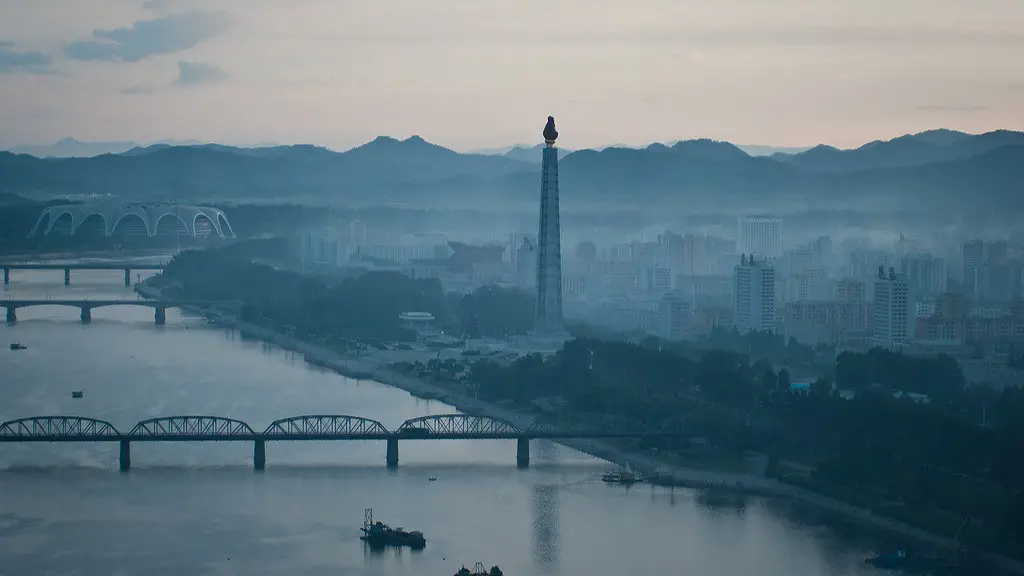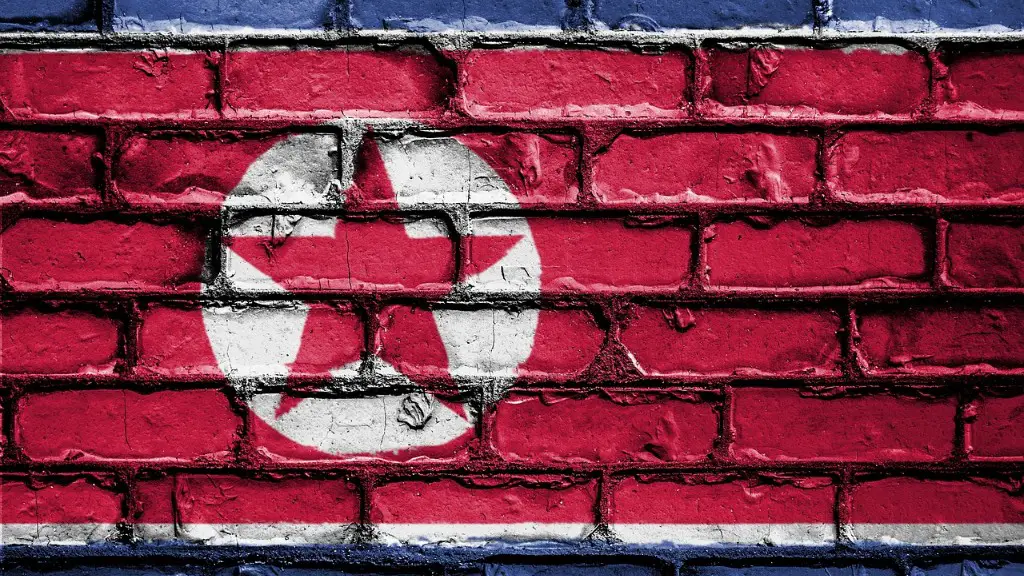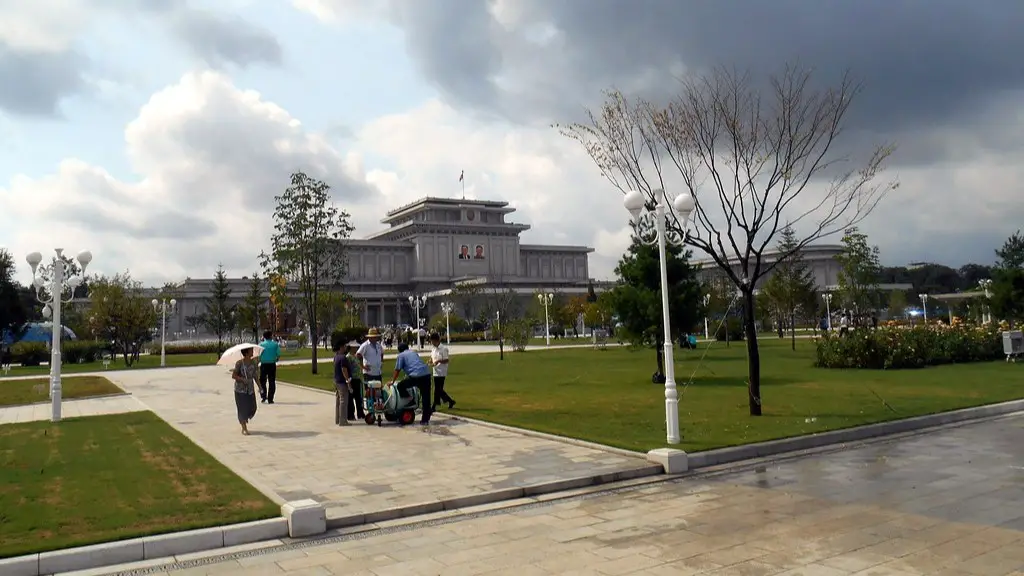Aggressive Weapons Testing
North Korea has had a long, turbulent history of aggressive and often illegal activities stemming from their nuclear weapons program. Overshadowed further by the death of Kim Jong-il and the rise of his son Kim Jong-un, North Korea has continued to test their weapons, often in violation of United Nations protocols. Recent missile tests conducted by North Korea have been seen as particularly provocative, with one such test just this month landing in the Sea of Japan.
In a statement issued by the United Nations Security Council, they condemned North Korea’s “irresponsible and reckless behavior”. The statement went on to demand that North Korea immediately stop its nuclear weapons testing, or face “significant measures” that would be taken against it.
Threats of War
North Korea responded to the demands of the United Nations Security Council by making direct threats of war against the United States and its allies. The North Korean President, Kim Jong-un, made a particularly menacing statement in which he said that if the United States and its allies did not back down from their demands, North Korea would be “forced to take physical action.” This led to a significant spike in tensions between the two countries.
The United States responded to these threats with a decidedly different attitude, calling for diplomacy instead of military action. President Obama ordered diplomatic channels be opened in hopes of de-escalating the situation and avoiding a conflict.
Economic and Diplomatic Pressure
Some experts and leaders have advocated for using economic and diplomatic pressure in order to persuade North Korea to end its nuclear program. Sanctions, imposed by the United Nations, have been used in the past to try and deter North Korea from its endeavors, although the results of these sanctions have been mixed at best.
A number of high profile defections from North Korea these past few years has brought the country’s oppressive regime into the public eye. Countries around the world are starting to recognize the human rights violations that are perpetrated in North Korea, and many claim that these abuses require international attention.
North Korean Propaganda
In light of these mounting pressures, North Korea has intensified their domestic propaganda. North Korean media outlets have put out numerous materials with the intent to stoke nationalist and xenophobic sentiment, portray leaders, most notably Kim Jong-un, as infallible, and identify a perceived enemy, usually the United States or one of its allies.
Propaganda is an important tool to help mobilize the North Korean people to act in the interests of the state. It seeks to control the nation through fear and playing on the historical grievances that the country has.
International Laws and Regulations
By threatening the United States and other nations with war, North Korea has violated numerous international laws and regulations. The United Nations Charter, which North Korea is a member of, forbids nations from threatening war or engaging in warlike activities.
The Nuclear Non-Proliferation Treaty, which North Korea is also a member of, also prohibits them from developing any nuclear weapons or delivery systems. The NPT demands that countries which are members of the treaty must sign off on any nuclear arms tests and North Korea is in violation of this agreement.
U.S. Reactions
The United States has taken note of North Korea’s violations of international laws and has vowed to “not stand idly by” as North Korea continues to provoke and threaten.
President Obama has made numerous statements to the media in which he strongly condemned North Korea’s actions and urged them to cease all tests and activities related to nuclear weapons. The U.S. has also sent a nuclear-powered aircraft carrier to the region in a display of force.
Furthermore, the U.S. has been working with its allies in the region, including South Korea and Japan, to ensure that North Korea’s activities do not escalate any further. The U.S. has also been urging China, North Korea’s closest ally, to pressure North Korea to end its provocations.
Escalation of the Situation
Despite the diplomatic efforts of the U.S. and its allies, the situation continues to escalate. North Korea has continued to test its nuclear weapons and make threats towards the U.S. and its allies. This has prompted the U.S. to continue to deploy troops and military assets to the region in a show of force.
The rise of Kim Jong-un has only made the situation worse as he has adopted an even more hard-line stance towards the U.S. and its allies. With no real dialogue between the two parties, it has become increasingly difficult to reach a peaceful resolution.
The Role of China
China is in a unique position as it is one of the few nations with enough influence to influence North Korea’s government. Despite the frustrations of the United States, China has yet to make good on its promises to put pressure on North Korea in an effort to de-escalate the situation.
China has made numerous attempts to pressure North Korea, however there is still a significant amount of sympathy for North Korea, with many Chinese citizens viewing them as victims of U.S. aggression. As China continues to maintain its diplomatic ties with North Korea, the fate of the region’s security remains uncertain.
Global Community Responses
In response to North Korea’s aggression, the global community has unanimously condemned their actions and called for a peaceful solution to the conflict. Most countries have agreed that military force is not the answer, while some have advocated for economic or trade sanctions as a way to bring North Korea to the negotiating table.
Meanwhile, other countries have expressed concerns over the reliability and security of the North Korean government and have urged their citizens to take more cautious measures in an effort to protect themselves and their interests.
Finding a Solution
As tensions continue to rise between the United States and North Korea, the international community is searching for a durable solution to this problem. However, there are no easy answers and until there is a willingness on both sides to negotiate, the situation is likely to remain volatile and potentially dangerous.
Experts believe that the only way for the two sides to reach a peaceful resolution is for the United States and North Korea to open up a direct dialogue. Until then, it seems as if the threat of war continues to loom over the region.


